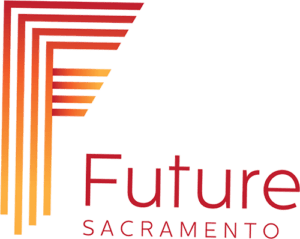As we began 2020, the outlook was positive. The Class of 2020, Generation Z, “was in line to inherit a strong economy with record-low unemployment.” (pewsocialtrends.org) Our economy and stock market were strong. Unemployment rate had been declining and was at or below 5% for five years. February 2020, the unemployment rate was only 3.5% and the stock market saw record highs in the first half of the month.
Then, the corona virus pandemic derailed our economy in a matter of a few weeks. “COVID-19 has reshaped the country’s social, political and economic landscape …and an uncertain future” (pewsocialtrends.org).
All three indexes of the stock market experienced the worst week since the fall of the 2008 financial crisis. The unemployment rate quickly multiplied to 14.7% for all groups, 23.1 million unemployed persons in April – showing the highest rate and the largest over-the-month increase in the history of the series (since January 1948). Teen workers were hit hardest, seeing 31.9% unemployed. The U.S. Bureau Of Labor Statistics announced that “employment fell sharply in all major industry sectors, with particularly heavy job losses in leisure and hospitality.”
Then the scramble within education began. On Friday, March 6, 2020 the University of Washington and Stanford University announced classes will no longer meet in person for the remainder of Winter 2020 quarter. Then campuses across the country announced plans to transition to online learning.
“By Friday, March 13, an eerie silence fell on campuses across the nation… School is often a refuge from the gusts of history. But the events that rupture the classroom routine, from President Kennedy’s assassination to 9/11, tend to be the ones that stick with students forever. The coronavirus disrupted more class time, for more students, than almost any other event in U.S. history…For underclassmen, the shortened semester was an irritating disruption. For seniors, it was a total upheaval. (Time.com)
Uncertainty and constant changes were the theme for students during Spring 2020 term. Graduating seniors spent their final terms in school isolated – surrounded by “forgone memories, the abrupt goodbyes, the lost opportunities” (Time). But for the Class of 2020 (who are among the oldest of Gen Z, being born in 1997 and 1998) fear and uncertainty is not new. Class of 2020 were in day care and pre-kindergarten on 9/11. Their childhoods have been punctuated by school -shootings (Time).
“College graduation is often marked by an adjustment period, as students leave the comforts of campus to find their way in the raw wilderness of the job market. But this year’s graduates are staggering into a world that is in some ways unrecognizable. (Time.com)
The Class of 2020 is graduating into a splintered and grim job market – riddled with waves of layoffs, large scale furloughs, hiring freezes and rescinded offers of jobs and internships. “More than 1 in 5 employers surveyed by the National Association of Colleges and Employers in April said they were rescinding their summer internship offers (Time).” Not only have the number of job opportunities been slashed, but the applicant pool is flooded with recently unemployed experienced workers, other college graduates of the class of 2020, and many other young applicants who are delaying college admission due to closed campuses or seeking to replace lost household income due to recently unemployed family members.
This crisis is more than a lack of jobs, graduating in a recession can cause long term setbacks as we see widespread unemployment among educated young people.
“Historically, college graduates entering the work force during a recession have faced setbacks that can last a decade or longer…They often miss out on valuable training that can set them on a career path and, once the economy recovers, they have permanently lower employment and earnings, (usnews.com).”
“Graduating in the midst of the corona virus pandemic will have enduring implications on the Class of 2020: for their memories, their earning power, and their view of what it means to have a functional society. For these young adults, the pandemic represents not just a national crisis but also a defining moment.” (Time)
Members of Gen Z are more racially and ethnically diverse than any previous generation, and they are on track to be the most well-educated generation yet. They are also digital natives who have little or no memory of the world as it existed before smartphones. (pewsocialtrends.org) They are a generation that grew up with high-speed internet and the openness to personal information sharing on social media and are significantly more dependent on technology (wgu.edu). Class of 2020 is considered industrious, seeking ‘side hustles’ or freelance work and have a preference to to juggle more than one source of income, “Nearly one in five Gen Z’ers want to run their own business, and the vast majority of them would like to turn pet hobbies into full-time careers” (wgu.edu).
“Consider Emma Havighorst, a 22-year-old marketing major graduating from Fordham University in New York City. In March, she sat stunned in front of her laptop: Nearly every company on her wish list had pulled job openings. “That’s when it hit me that this is real, that this is going to impact what I do next,” she said. But Havighorst still landed a paid internship, managing social-media channels for Next Gen HQ, a business hub that aims to empower entrepreneurs. She hopes it can turn into a full-time role come August. Yet Havighorst is confident. “Gen Z is innovative and powerful,” she said. “The way we see the world is very different from prior generations.” For three years Havighorst has hosted the podcast “Generation Slay,” which profiles Gen Z creators and entrepreneurs… In her estimation, the pandemic will produce even more innovators. “Necessity breeds invention,” she said. “We’ll be trying to figure out solutions to problems that plagued past generations.”
businessinsider.com

